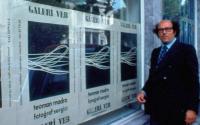27 Aprila 2005Andrew Ward
 President George W. Bush will on Wednesday throw his support behind a worldwide expansion of nuclear power and announce plans for a new generation of oil refineries and natural gas terminals in the US.
President George W. Bush will on Wednesday throw his support behind a worldwide expansion of nuclear power and announce plans for a new generation of oil refineries and natural gas terminals in the US.
| // |
The proposals, which will be made in a speech in Washington, are designed to help ease the capacity constraints that have pushed energy prices to record highs this year. Mr Bush will call for Congress to work with the Department of Energy to "reduce uncertainty" surrounding regulatory approval for nuclear power plants, paving the way for the first expansion in nuclear power in the US for decades.
Senior White House officials said Mr Bush would also call for international co-operation to promote "greater use of clean coal and nuclear power around the world" to reduce stress on global energy markets.
In addition to increasing capacity, Mr Bush believes nuclear power can also be part of the solution to climate change because it does not produce the greenhouse gases blamed for global warming.
Mr Bush's speech on Wednesday represents a wish list of initiatives he would like to see incorporated into energy legislation currently making its way through Congress. The House of Representatives passed an energy bill last week and the Senate is expected to start work on its version in the next few weeks before the two houses seek to agree the final legislation for Mr Bush's signature.
Energy has become a hot political issue in the US as fuel prices have surged and the country has become increasingly dependent on foreign oil and gas.
Officials said Mr Bush would set out his vision for tackling the "root causes of today's high price environment" through increased domestic energy production and processing, and use of technology to develop renewable energy sources and promote energy efficiency.
In the most novel proposal contained in Mr Bush's speech, officials said he would call for the construction of new oil refineries on former military bases, creating new jobs in communities hit by base closures while also easing the country's acute shortage of refining capacity.
No new oil refineries have been built in the US since 1976 and existing facilities are struggling to cope with demand.
Officials said Mr Bush would also call on Congress to remove barriers to new liquefied natural gas terminals by giving federal authorities the power to override opposition to the facilities from states. The US needs more than the existing four terminals to handle surging imports of LNG.
Mr Bush was also expected to call for Congress to extend tax benefits for fuel-efficient cars to include "clean diesel" vehicles, in addition to the hybrid and fuel-cell vehicles which are already included. The incentive would be worth $2.5bn over 10 years, according to White House officials.
The combination of tax breaks for "green" cars with expansion of nuclear power and traditional fossil fuel supplies shows how Mr Bush is seeking to strike a balance between competing calls for increased energy capacity and energy conservation.
However, environmentalists are likely to argue the balance is too heavily in favour of the energy industry, which has close ties to Mr Bush and the Republican Party. Critics are particularly wary of Mr Bush's promotion of so-called "clean coal" technology, which still emits large amounts of greenhouse gases, instead of more aggressively developing renewable energy sources.
http://news.ft.com/cms/s/0b727b02-b6d7-11d9-aebd-00000e2511c8.html






